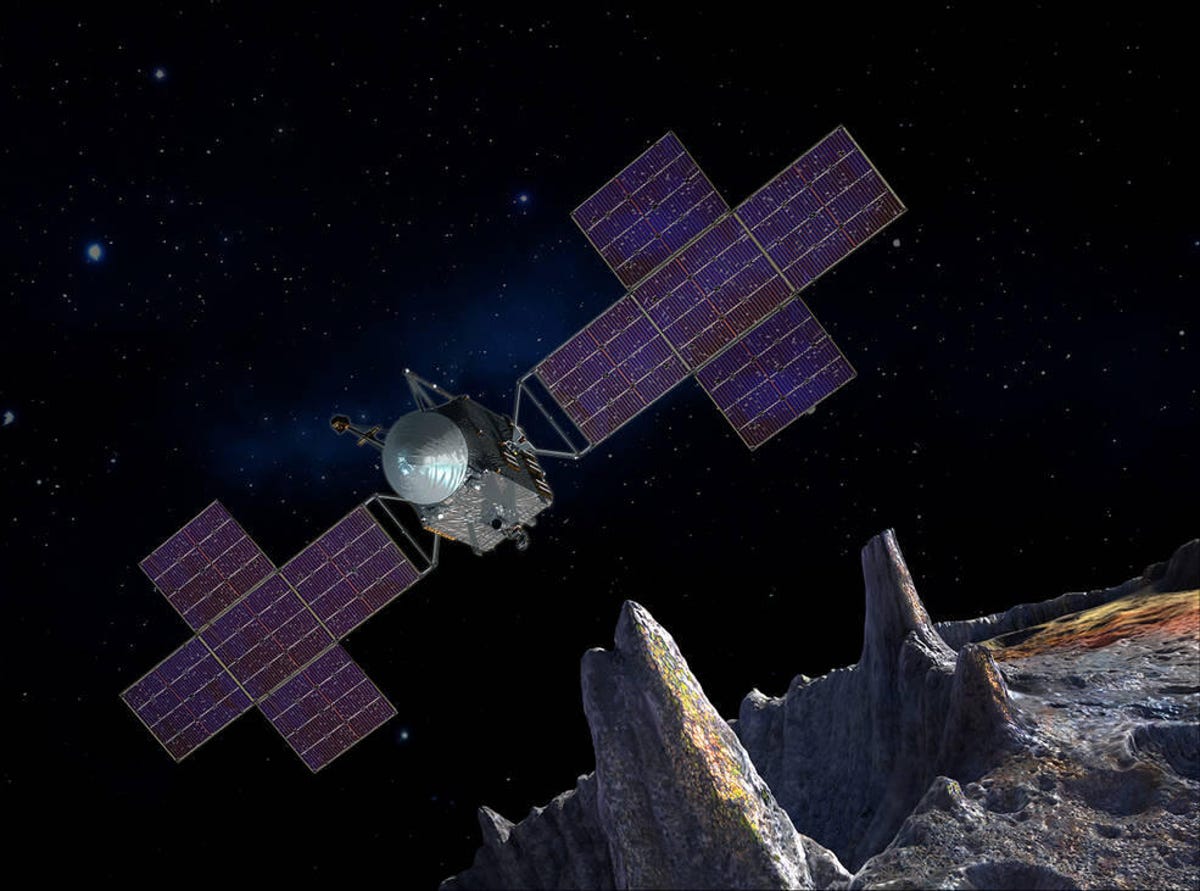NASA develops a Plan B for the Psyche asteroid mission

In June, NASA’s Psyche asteroid mission, the agency’s first mission designed to study a metal-rich asteroid, was delayed due to mission development problems. As a result, the agency had to reevaluate if the mission was capable of overcoming these challenges for a 2023 launch date or if the mission should be terminated.
On Friday, NASA announced that they have decided to move forward with the mission with a new projected 2023 launch period opening on Oct. 10, 2023 and estimated arrival at the asteroid in August 2029.
The spacecraft’s projected journey will be very similar to the original one planned for 2022, still using a Mars gravity assist in 2026 to send the spacecraft towards the asteroid, according to NASA. Spacecraft flight software continues to undergo testing in preparation for the 2023 launch date.
Both an independent review and a separate project-proposed mission replan informed the continuation/termination review. The independent review board is finalizing its report, which will be shared to the public along with NASA’s once completed.
NASA’s Jet Propulsion Laboratory Director Laurie Leshin shared that she is confident in the teams’ investigations and the new course of action.
“During this review, they [the Psyche team] have demonstrated significant progress already made toward the future launch date,” said Leshin. “I am confident in the plan moving forward and excited by the unique and important science this mission will return.”
The Psyche mission is significant because it will investigate a never-explored metal asteroid that appears to be the exposed nickel core of an early planet. Exploration of the asteroid will give scientists the opportunity to further investigate and understand this building block of planet formation and our solar system.
“I am excited about the science insights Psyche will provide during its lifetime and its promise to contribute to our understanding of our own planet’s core,” said Thomas Zurbuchen, associate administrator of NASA’s Science Mission Directorate in Washington.

Pingback: Online medicatie kopen zonder recept bij het beste Benu apotheek alternatief in Amsterdam Rotterdam Utrecht Den Haag Eindhoven Groningen Tilburg Almere Breda Nijmegen Noord-Holland Zuid-Holland Noord-Brabant Limburg Zeeland Online medicatie kopen zonder r
Pingback: ห้องพักรายวัน คู้บอน
Pingback: research
Pingback: สล็oต pg เว็บตรงแตกหนัก
Pingback: link
Pingback: protein shakes
Pingback: n-ethylpentedrone kopen | buy 2mmc | 6 apb pellets | buy 5-mapb | deschloroketamine | 4-mpd (4-methylpentedrone) | 6 apb powder | 2-mmc pellets, 5-mapb | 2-mmc crystalline powder | 4bmc poeder | acheter 3-me-pcp | buy cathinonen | buy 6 apb powder |NEP N-
Pingback: fruit party
Pingback: ethanol burners